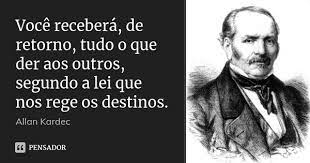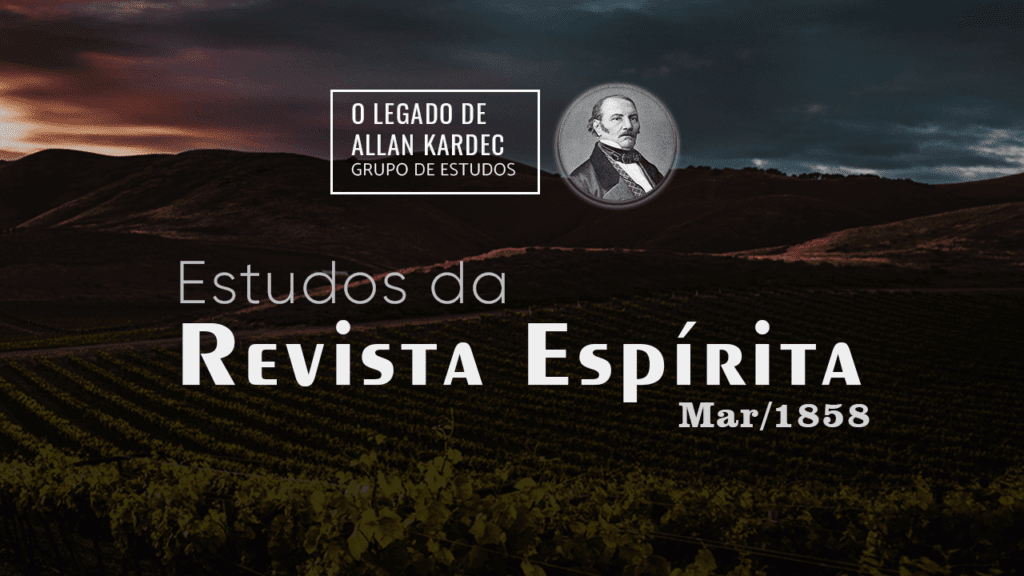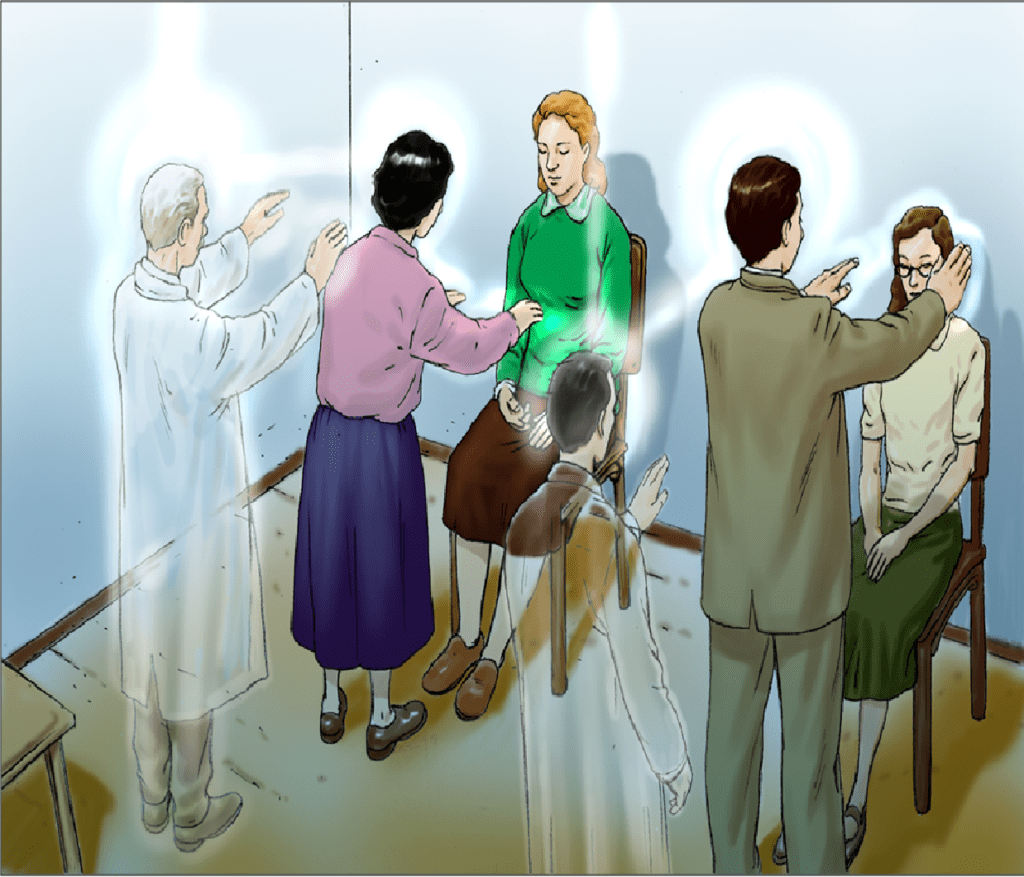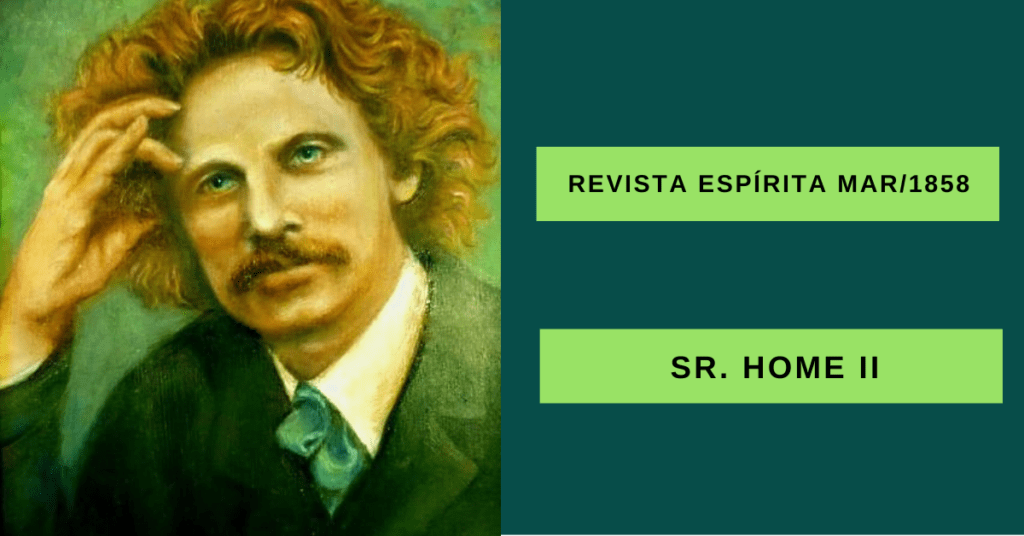Family lectures from beyond the grave: Bernard Palissy (March 9, 1858)
Through previous evocations, it was known that Bernard Palissy, a celebrated 16th-century potter, inhabits the planet Jupiter. When evoked, Allan Kardec, as was his custom, asked him questions whose answers were, for ease of reading, condensed in the text of what was said about this planet, on several occasions, by other Spirits and through different mediums. Let's see the dialog by topics:
Overview of the Spirit of Bernard Palissy
Bernard Palissy it took a while to leave the planet's surface. She confessed to having been in the guise of a loving and devoted woman, on a mission that lasted thirty years. He said it was obscure to name the woman.
The Spirit traced, by the hand of Mr. Victorien Sardou, the admirable drawings about the planet Jupiter in order to inspire us with the desire to become better. He said he didn't care about the material works of the sketches, but about the suffering that raised him.
Finally, he argued that he often comes to this Earth that he has inhabited several times. About her physical and moral state, she made a comparison between her and Jupiter saying that she came to our globe only as a Spirit and that he no longer has material sensations.
physical state of the globe
Jupiter's temperature cannot be compared to one of our latitudes, for it is mild and temperate; is always the same, while ours varies.
The Sun appears to the inhabitants of Jupiter in very small size and, consequently, gives very little light. Thus, Jupiter is surrounded by a kind of spiritual light, in relation to the essence of its inhabitants. The coarse light of our Sun was not made for them. Jupiter's atmosphere is not made up of the same elements as Earth's atmosphere, for men are not the same. Your needs have changed.
There is water and seas there. The water is more ethereal than ours.
There are no volcanoes. The globe is not tormented like ours. Nature did not have its great crises there. It is the abode of the blessed. In it, matter almost does not exist. Plants are similar to ours, but they are more beautiful.
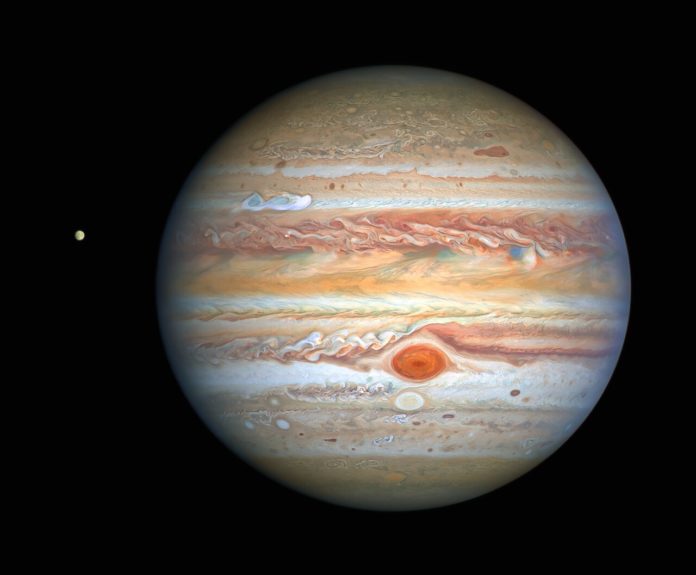
physical state of the inhabitants
The conformation of the body of its inhabitants is related, being considered the same. Their stature, compared with that of Earth's inhabitants, is that of large and well-proportioned beings. Bigger than our biggest men. Man's body is like the mold of his spirit: beautiful where he is good. The wrap is worthy of it: it is no longer a prison. The specific density of the human body allows man to transport himself from one point to another, without being, as here, tied to the ground.
There the inert bodies are opaque, diaphanous and translucent. Some have this property, others have another, according to their purpose.
In relation to human bodies, the body envelops the Spirit without hiding it, like a thin veil thrown over a statue. In the lower worlds, the gross envelope hides the Spirit from its fellows, but the good ones have nothing more to hide: each one can read the hearts of others. The body of the inhabitants of Jupiter being less dense than ours, it is formed of compact and condensed or vaporous matter which is compact for them but not for us. It is less condensed and impenetrable.
There is a sex difference there. Sex is everywhere where matter exists.
The basis of the inhabitants' diet is purely vegetable, as man is the protector of animals. Part of their food is extracted from the environment, whose emanations they aspire to.
Compared to ours, the life span is longer. They live about five centuries. In childhood, man retains his superiority: childhood does not compress intelligence nor does old age extinguish it.
Men are not subject to disease.
Life is not divided between sleep and wakefulness, but between action and rest.
Concerning the various occupations of the men they have there, it was said that they would have much to say. Its main occupation is the encouragement of the Spirits that inhabit the lower worlds, so that they persevere in the right way. If there are no misfortunes among them to be alleviated, they will look for them where they exist: they are the good Spirits who support you and attract you to the right path.
There the arts are considered useless. For them, our arts are toys that distract from our pain.
There is no boredom and distaste for life there. Disgust in life originates in self-contempt.
The inhabitants do not have, like us, an articulated language. Among them there is communication through thought. The second sight is, as we have been informed, a normal faculty and remains among them. The Spirit knows no obstacles. Nothing is hidden from you. They communicate always and more easily than we do with other spirits. There is no longer matter between them and us.
The knowledge of the future depends on the degree of perfection of the Spirit: this has less inconvenience to them than to us; it is even necessary for them, to a certain extent, to carry out the missions with which they are entrusted, but to say that they know the future without restrictions would be to level them with God. The prediction of the future is on merit.
Death does not inspire the same horror and dread as it does among us, for evil no longer exists among them. Only the bad are terrified at their last moment. He fears his judge. The inhabitants of Jupiter after death always grow in perfection, without undergoing further tests. There are no spirits in Jupiter who submit to tests in order to fulfill a mission, because only the love of good leads them to suffering. They cannot fail in their mission because they are good. There is only weakness where there are defects.
Asked if he could name some of the Spirits inhabiting Jupiter who have performed a great mission on Earth, São Luís was listed. I didn't want to name others, because there are unknown missions, whose objective is the happiness of only one. Sometimes they are the biggest and most painful.
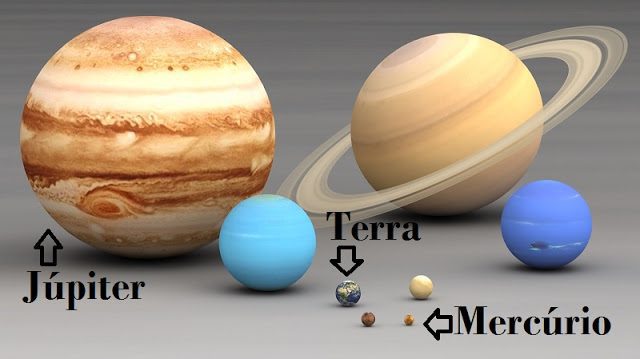
Of the animals
The body of animals is more material than that of men, for man is the king, the planetary god. Animals do not tear each other apart. They all live subject to man and love one another. However, there are no animals that escape the action of man, as well as insects, fish and birds. All are useful to you.
Animals are the workers and foremen who carry out material work, build houses, etc. Man no longer lowers himself to serve his fellow man. Servant animals are linked to a particular family, under the state of submission, without remuneration.
The faculties of animals are developed by themselves. Their language is more precise and characterized than that of earthly animals.
moral state of the inhabitants
The dwellings he showed in your drawings are grouped together in cities like here. Those who love each other get together. Only passions establish solitude around man. He said that if a man who is still evil seeks his fellow man, who is for him an instrument of pain, a pure and virtuous man should not run away from his brother.
Spirits are of different degrees, but of the same order. Asked if he could refer especially to the spiritist scale that we gave in the second issue of the Magazine and that he would tell us what order the spirits incarnate in Jupiter belong to, he said that they are all good, all superior. Sometimes good descends to evil; however, evil never mixes with good.
The inhabitants form different peoples as here on Earth, but all united by the bonds of love. Wars are unknown.
He argued that man could reach such a degree of perfection on Earth that war would be unnecessary. War will disappear with the selfishness of peoples and as fraternity is better understood.
Peoples are ruled by chiefs. The authority of chiefs is in its highest degree of perfection. The superiority and inferiority of the Spirits in Jupiter, since they are all good, is measured by the greater or lesser amount of knowledge and experience; purify themselves as they become clearer.
Unlike Earth, there are no more or less advanced peoples there, but among peoples there are different degrees. If the most advanced people on Earth were transported to Jupiter, they would fill the role that apes have among us.
Peoples are governed by laws and there are no criminal laws, because there are no more crimes. Who makes the laws is God.
There are no rich and poor, no men who live in abundance and superfluous and others who lack the necessary, because they are all brothers. If one possessed more than the other, he would share with him; he wouldn't be happy when his brother was in need. No one lacks what is necessary; nobody has the superfluous. In other words, everyone's fortune is in relation to their condition. He who has less is not unhappy with him who has more. He cannot be unhappy if he is not envious or jealous. Envy and jealousy produce more unhappy people than misery.
He didn't want to answer what wealth on Jupiter consists of, but he confirmed that there are social inequalities in the laws of society. Some are more advanced than others in perfection. Superiors have a kind of authority over others, like a father over his children.
Man's faculties are developed by education. Man may acquire enough perfection on Earth to deserve to pass immediately to Jupiter, but on Earth man is subjected to imperfections in order to be in relationship with his fellow men. When a Spirit leaves the Earth and must reincarnate in Jupiter, it wanders for some time, until it finds the body to which it must be united in order to get rid of earthly imperfections.
There are not several religions, because all profess good and all worship one God. There are no temples and no cult, since by temple there is the heart of man; by worship, the good he does.


